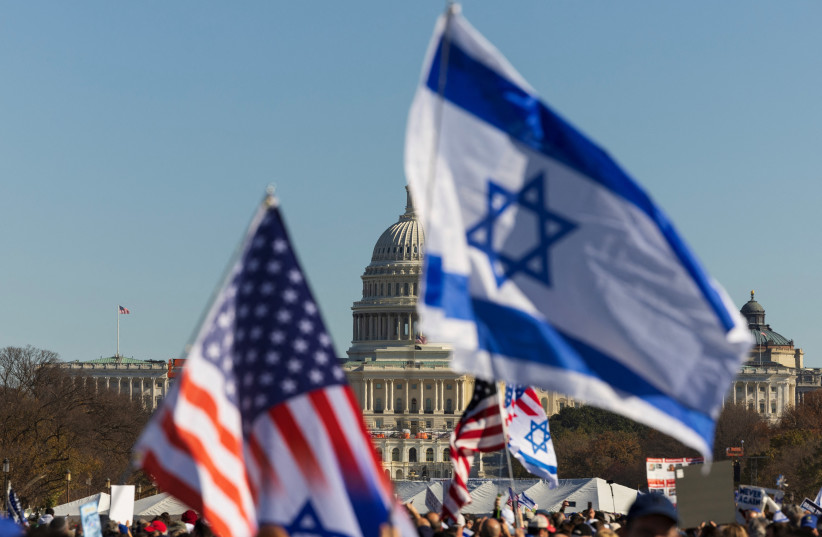In the wake of the tragic events on October 7, etched into history for Hamas’s brutal massacres and widespread atrocities, a determined effort unfolded. On November 7, I accompanied two courageous young women, Yulie Ben Ami and Maayan Wise, on a poignant mission to Washington, DC. Their goal: to secure the release of both their parents and Wise’s younger sister, victims of the largest-scale kidnapping in modern history.
This symbolic mission, undertaken by the Israel-is organization and the American Jewish Committee, faced the unprecedented challenge of dealing with the plight of some 240 hostages from 28 different countries. In the realm of public diplomacy and humanitarian crises, never had such a formidable task been faced.
The mission comprised crucial meetings with senators and congressmen willing to listen to firsthand accounts of families grappling with the plight of their loved ones. The focus was on eliciting concrete actions within the power of these representatives to secure the release of hostages, especially children and individuals with pressing humanitarian needs – such as Ben Ami’s mother, who is battling a tumor and relies on medications for survival.
Ben Ami held a private meeting at Red Cross headquarters in DC to re-register her mother’s medication, hoping this information would reach the Hamas terrorist organization. Against the backdrop of Capitol Hill, Wise and Ben Ami were interviewed, holding posters of their hostage parents, ensuring their stories reached a top TV news outlet – Grey Television, with a 36% reach across all networks in the US.
Meetings with Senators Rick Scott, Brian Schatz, and Michael Bennett reinforced a crucial lesson: the ongoing need to thrust family hostage stories onto the international stage. The imperative was clear – this humanitarian crisis and these crimes against humanity must not be allowed to fade into obscurity. Drawing parallels with the media coverage of Ukraine’s war with Russia, it became evident that sustained visibility is key to prompting global notice and action.

The discourse extended to possible actions, with a consensus emerging that military pressure on Hamas could yield the most favorable outcome for resolving the hostage crisis. Additionally, recognizing the role of Middle East pressure as a significant force in reshaping the situation became apparent.
More than 100 congresspeople attended the vigil
The day concluded with a historic candlelight ceremony attended by more than 100 congresspeople from both parties, including House Speaker Mike Johnson and former speaker Nancy Pelosi. Representatives of hostage families, including Wise and Ben Ami, gained nationwide exposure on the footsteps of Capitol Hill. The speakers drew a poignant comparison, characterizing the October 7 Hamas massacres as the most challenging period for Jews worldwide since the Holocaust. Implicit in their words was the moral obligation of the US government to support Israel in its justifiable actions against the Hamas-controlled Gaza.
Being present on this day at Capitol Hill marks a personal milestone, a firsthand testament to the ongoing struggle for justice and humanitarian action. The irony is not lost on me; I recall strolling these same corridors in Congress, promoting the third anniversary of the Abraham Accords with a Middle East delegation, only two months ago. During that time, I was fervently advancing people-to-people projects through environmental discourse, focusing on water, and fostering cultural exchanges.
This juxtaposition underscores the complex and multifaceted nature of the challenges and opportunities we encounter in our pursuit of a more just and harmonious world.
The writer is the foreign affairs manager of Israel-is.
